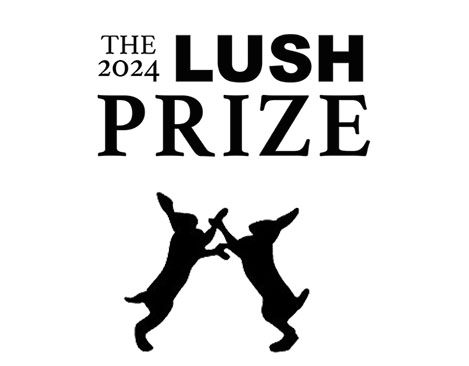Lush Prize at International Animal Rights Conference
![]()
As part of the ongoing promotion of the Lush Prize, we attended the International Animal Rights Conference in Luxembourg in early September.
This annual conference has a packed programme covering many different animal protection issues and their connection to other social justice movements. Topics included animal testing, veganism, animal farming and climate justice, animal sanctuaries and more. Over 500 people from across Europe as well as some from Asia and the Americas attended the four-day conference.
On the agenda covering issues around animal testing were:
Jen Hochmuth, an environmental toxicologist who worked on the preparation of registration dossiers requiring chemical safety assessments in view of the EU REACH regulation, who now works for Belgian NGO Animal Rights. Her presentation ‘Animal testing: Why is it inhumane for humans and not just animals?’ was a great overview for campaigners about the scientific invalidity of relying on animal research and why it is harmful to human as well as non-human animals.
Vanessa Shakib, co-director of Advancing Law for Animals, a non-profit law firm for animals in the USA, gave a review of U.S. legal trends impacting animals at local and national levels of government and how the law has the potential to both improve or worsen conditions for animals. With the Animal Welfare Act not applying to mice, rats and some other animals used in laboratory research, around 90% of all animals used are not protected by law. The work of Advancing Law for Animals has included litigation to enforce anti-cruelty laws with respect to animals not subject to the AWA.
You can watch Vanessa’s presentation on the conference YouTube channel here.
Nick Jukes, co-ordinator of InterNICHE, the International Network for Humane Education, is both a previous Lush Prize winner (for Training in 2012) and a judge for Lush Prize 2020. Nick gave two in-depth presentations about humane education and the replacements and alternatives to animal use that are available to educational institutions. He talked about the ‘revolution’ in the 1990s with the introduction of computer-based alternatives such as software, and the ‘materials technology revolution’ happening now with the introduction of virtual reality and synthetic canines for veterinary training.
You can view Nick’s presentation on humane education on the conference YouTube channel here.
===
25 September 2019








Spread the word: